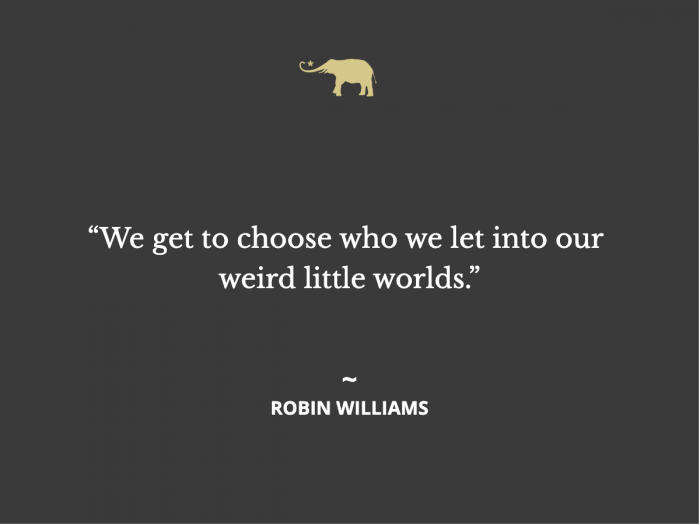We rarely share the pure rawness of ourselves.
We say we do. We say things like, I woke up like this. But we didn’t. We posed for the photo, made sure we looked bad but not too bad, and we picked an angle and probably took 27 photos before deciding on what looked like the best mix of dishevelled and cute.
People don’t see us in our absolute rawness because that’s what intimacy is for. We can’t be intimate with the entire world—that’s not how it works.
Intimacy is for our partners, our family, our close friends. And we show these people the authentic sides of ourselves because they’ve earned it.
Brené Brown’s Anatomy of Trust Theory talks about how we all have a marble jar, and how the people in our lives earn a marble in these small, everyday moments that allow us to trust them over time. I can think of a select few in my life who have earned those marbles. Years of trust built-up in our friendship. With family, it has been a nonnegotiable; we are tight-knit, and the jar-filling, endless.
In romantic relationships, however, it’s always a little more nuanced since these tend to be new people we’ve suddenly allowed into our lives.
I once had a guy tell me my “walls were hard to break down.” And he blamed the downfall of our “situationship” on the fact that I didn’t trust him. I had known this man for less than a few months, seeing him in sparse encounters every few weeks. He wouldn’t message back for days at a time. And once, he lied about being somewhere alone, but had, in fact, been with a female friend (nothing had happened, but still, it was a lie).
This man had not earned my marbles. My walls were allowed to be up.
Brené also has a list of the seven elements of trust, which she talks about in her book, Braving. They are:
1. Boundaries: they respect your boundaries.
2. Reliability: they do what they say they’ll do.
3. Accountability: they own their mistakes and apologize.
4. Vault: they don’t share information that is not theirs to share (this, especially, is a huge flag in friendships).
5. Integrity: courage over comfort.
6. Nonjudment: ability to talk about how you feel without judgment.
7. Generosity: assume a generous interpretation to the words, actions, and intentions of others.
We all know that Joe with the baseball cap with a million mirror selfies who follows you on Instagram has most certainly not earned your marbles.
Intimacy and vulnerability are scary, but we don’t have to expose ourselves to everyone right off the bat. We are allowed to mask ourselves, have a wall, set boundaries as a way of protection.
Sometimes, we need to create a layer of distance between the real us and the outside world so if something goes wrong, we have that cushion to give us a landing pad from getting hurt.
That being said, we do need to slowly peel off the layers in order to connect. As the marble jar fills up, so do our walls need to descend.
It doesn’t have to be right away, and it doesn’t have to be with everyone. As Robin Williams said, “We get to choose who we let into our weird little worlds.”
Putting up boundaries—even if that means putting a filter on a photo because you don’t know how the world will react—is a safety mechanism, and there is nothing wrong with that.
The world doesn’t need to really see what you woke up like. But I’m sure there are a select few who will love your messy hair and stinky breath regardless.
~
Check out her full “Anatomy of Trust” talk:
Brené Brown’s definition of Trust Transformed my Understanding of Relationships.
~












Read 29 comments and reply